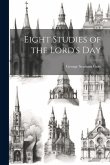The Provincial letters are a series of eighteen letters written by French philosopher and theologian Blaise Pascal. Written in the midst of the formulary controversy between the Jansenists and the Jesuits, they are a defense of the Jansenist Antoine Arnauld from Port-Royal-des-Champs, a friend of Pascal who in 1656 was condemned by the Faculté de Théologie at the Sorbonne in Paris for views that were claimed to be heretical. The First letter is dated January 23, 1656 and the Eighteenth March 24, 1657. A fragmentary Nineteenth letter is frequently included with the other eighteen. In these letters, Pascal humorously attacked casuistry, a rhetorical method often used by Jesuit theologians, and accused Jesuits of moral laxity. Being quickly forced underground while writing the Provincial Letters, Pascal pretended they were reports from a Parisian to a friend in the provinces, on the moral and theological issues then exciting the intellectual and religious circles in the capital. In the letters, Pascal's tone combines the fervor of a convert with the wit and polish of a man of the world. Their style meant that, quite apart from their religious influence, the Provincial Letters were popular as a literary work. Adding to that popularity was Pascal's use of humor, mockery, and satire in his arguments. The letters also influenced the prose of later French writers like Voltaire and Jean-Jacques Rousseau. Brilliantly written by Pascal, the Provincial Letters would not have been possible without the work of theologians from Port-Royal; indeed, most of the arguments Pascal deployed were already to be found in Arnauld's Théologie morale des Jésuites, something which led the Jesuit Nicolas Caussin to reply to Pascal's perceived libel. Pascal's main source on Jesuit casuistry was Antonio Escobar's Summula casuum conscientiae (1627), several propositions of which would be later condemned by Pope Innocent XI. Paradoxically, the Provincial Letters were both a success and a defeat: a defeat, on the political and theological level, and a success on the moral level. Thus, King Louis XIV ordered that the book be shredded and burnt in 1660. The final letter from Pascal, in 1657, had defied the Pope himself, provoking Alexander VII to condemn the letters. But that didn't stop most of educated France from reading them. Moreover, even Pope Alexander, while publicly opposing them, nonetheless was persuaded by Pascal's arguments. Just a few years later, Alexander condemned "laxity" in the church and ordered a revision of casuistical texts.
Hinweis: Dieser Artikel kann nur an eine deutsche Lieferadresse ausgeliefert werden.
Hinweis: Dieser Artikel kann nur an eine deutsche Lieferadresse ausgeliefert werden.








